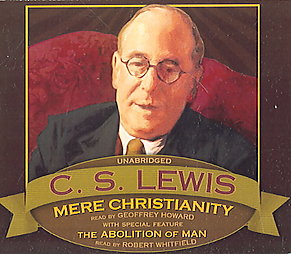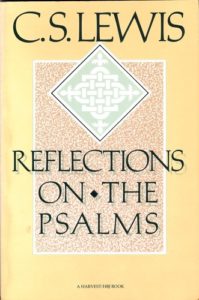One could argue, quite convincingly, I think, that every sin is simply something good being misused. Food is for our good and we are to eat; gluttony is the misuse of what was meant to be good. Sex is a gift of God provided as both a means to create unity between husband and wife as well as for procreation. Yet we see what it has become—a complete perversion of God’s intent.
 As I’ve been going through Mere Christianity with my university class on C. S. Lewis, we recently came upon the passage that emphasizes what I’m trying to say here. Lewis, in the chapter titled “invasion,” attempts to make sense of the wickedness of man and the motivation for doing that which is evil.
As I’ve been going through Mere Christianity with my university class on C. S. Lewis, we recently came upon the passage that emphasizes what I’m trying to say here. Lewis, in the chapter titled “invasion,” attempts to make sense of the wickedness of man and the motivation for doing that which is evil.
He begins by saying essentially what I have just written, only in his much better and more lucid style: “Wickedness, when you examine it, turns out to be the pursuit of some good in the wrong way.”
He elaborates:
You can be good for the mere sake of goodness: you cannot be bad for the mere sake of badness. You can do a kind action when you are not feeling kind and when it gives you no pleasure, simply because kindness is right; but no one ever did a cruel action simply because cruelty is wrong–only because cruelty was pleasant or useful to him.
In other words badness cannot succeed even in being bad in the same way in which goodness is good. Goodness is, so to speak, itself: badness is only spoiled goodness.
“Evil,” he concludes, “is a parasite [emphasis mine], not an original thing.” The directness of that statement can be startling, but it most certainly nails down the nature of evilness.
 Lewis highlights this contrast between good and evil also in his Reflections on the Psalms when he notes,
Lewis highlights this contrast between good and evil also in his Reflections on the Psalms when he notes,
If the Divine call does not make us better, it will make us very much worse. Of all bad men religious bad men are the worst. Of all created beings the wickedest is one who originally stood in the immediate presence of God.
Satan is not the opposite of God in his nature. He is not the evil god but merely a created being who once belonged to the heavenly realm. He threw away that glory and attempted to become glorious himself. He failed most miserably, thereby transforming himself into the most wicked of all created beings.
The calling of God on our lives and His expectation for how we are to live can be summarized in Galatians, chapter 5:
You, my brothers and sisters, were called to be free. But do not use your freedom to indulge the flesh. . . .
So I say, walk by the Spirit, and you will not gratify the desires of the flesh. . . .
The fruit of the Spirit is love, joy, peace, forbearance, kindness, goodness, faithfulness, gentleness and self-control. Against such things there is no law. Those who belong to Christ Jesus have crucified the flesh with its passions and desires. Since we live by the Spirit, let us keep in step with the Spirit.
